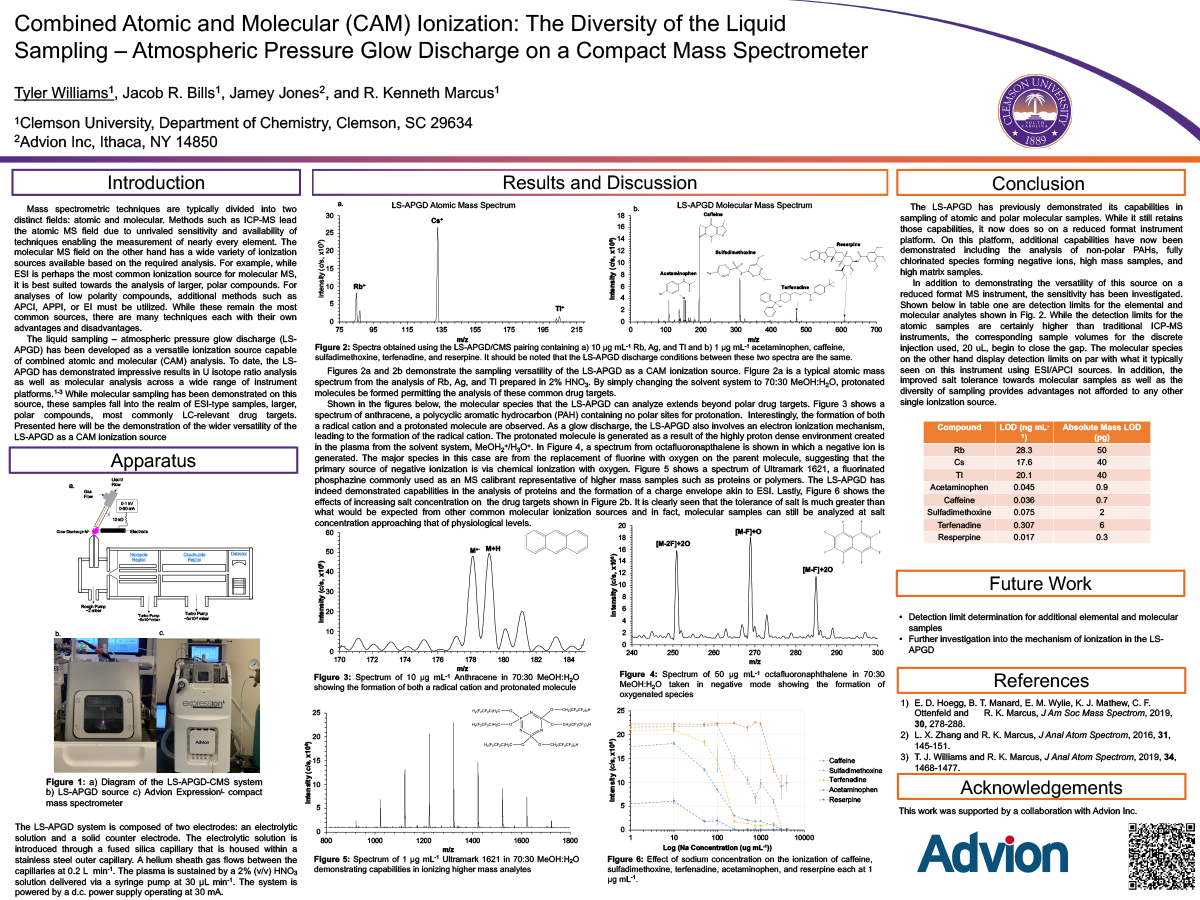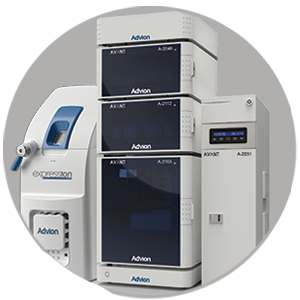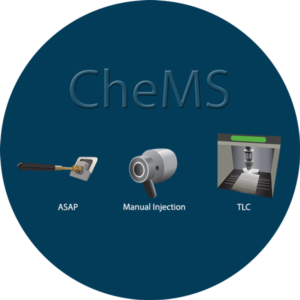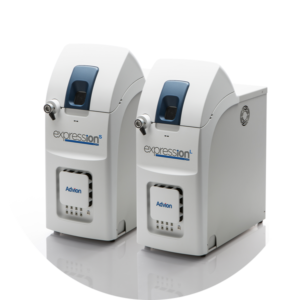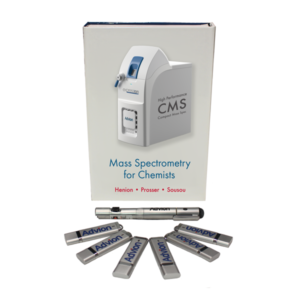“Did I make my compound?”
It’s a common phrase that may follow you around the lab daily. With time-sensitive reactions coupled with the time-sensitive need to confirm data, fast reaction monitoring is essential for bench chemists looking for the most streamlined daily workflow.
The expression Compact Mass Spectrometer (CMS) addresses the need of organic and synthetic chemists to understand the optimal time to quench a reaction mixture. They can obtain answers within minutes rather than hours or days. Additionally, multiple inlet techniques like the atmospheric samples analysis probe (ASAP), Plate Express TLC plate reader, direct injection and more provides the ultimate in flexibility for sample analysis without the need for complex sample preparation. In addition, the use of the expression CMS in flow chemistry applications is an ideal reaction monitoring tool.
Learn more about the essential tools for fast reaction monitoring in this comprehensive resource guide:
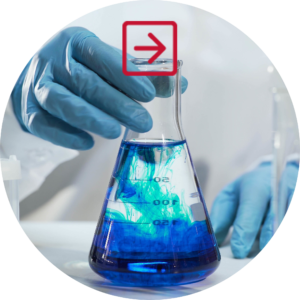
Whitepaper: Compact Mass Spectrometry – A Complete Reaction Monitoring Solution
• Learn different sample techniques and ionization methods based on your compounds
• See how prep-free, 30 second analysis can benefit your lab
• Find out how an optimized flow chemistry tool for fast reaction monitoring can take some burden off high resolution instruments with long run times
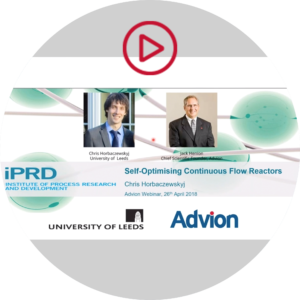
Webinar: Self-Optimizing Flow Reactors, Chris Horbaczewskyj, University of Leeds
• Learn advantages and disadvantages of both batch and flow chemistry
• Find out how on-line analytics within continuous flow chemistry allow reactions to be monitored in real-time allowing immediate characterization and the ability to optimize
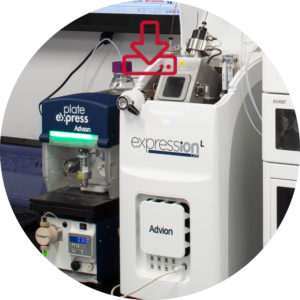
Application Note: Real-Time Reaction Monitoring of a Solution-Phase Peptide Synthesis using the Plate Express and expression TLC/CMS
• Read how a combination of thin-layer chromatography (TLC) and compact mass spectrometry (CMS) is a simple and quick way for chemists to overcome synthetic challenges and optimize chemical reactions
• Learn how peptides of pharmaceutical interest can be readily synthesized following a rapid, continuous solution-phase synthesis strategy
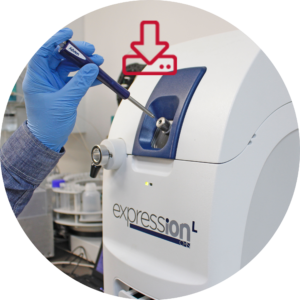
Application Note: Analysis of Two Reaction Products by Direct Analysis Probe on a Compact Mass Spectrometer
• Find out how, with one swipe, a liquid or solid can be introduced in to the mass spec for reaction monitoring results in seconds
• Read how the ASAP with the CMS is used in identification of the products of a reaction where two products are possible
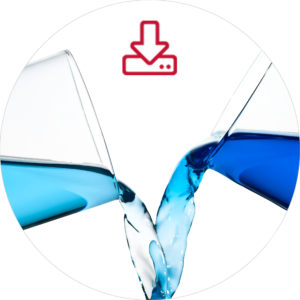
Application Note: Suzuki Reaction Monitoring Using Compact Mass Spectrometry with TLC Interface
• Learn how anonline thin-layer chromatography TLC/CMS technique using the Advion expression compact mass spectrometer (CMS) and Plate Express™ interface tcan provide compound structural information without sample preparation after TLC separation
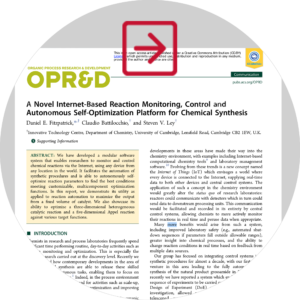
Publication: A Novel Internet-Based Reaction Monitoring, Control and Autonomous Self-Optimization Platform for Chemical Synthesis (Open Access)
• Learn how the expression CMS was integrated in to a new workflow developed by the University of Cambridge Ley Lab that offers a modular software system that enables researchers to monitor and control chemical reactions via the Internet, using any device from any location in the world
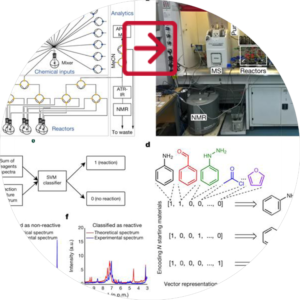
Publication: Controlling an organic synthesis robot with machine learning to search for new reactivity (Open Access)
• Using the Advion expression Compact Mass Spectrometer and developments in robotics and AI, learn how chemical reactions can be performed faster than they can be performed manually. Not only is speed a benefit, the development also can predict the reactivity of possible reagent combinations after conducting only a small number of experiments

BONUS SOFTWARE WEBINAR: New Developments in Mass Spectrometry – Peak Express
• Find out if you made your compound with a new type of mass spectrum: the Delta Spectrum (ΔS). The patented ΔS is able to look beyond chemical noise and automatically detect even the smallest peaks without knowing the m/z
• How to easily find adducts, dimers, fragments, side-reactions and other unexpected compounds at the click of a button, in real-time or with post-processing
• How to use Peak Express software to highlight minor components in complex mixtures and dirty matrices, and can give you the ability to control mass-directed purification without providing the compound mass
• How to easily acquire XIC-quality data while scanning the entire mass range, allowing Peak Express™ to tell you the m/z

